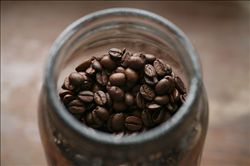Kenya coffee beans characteristics, production areas, introduction
Coffee entered Kenya in the 19th century, when Ethiopian coffee drinks were imported into Kenya through southern Yemen. But it was not until the early 20th century that the Bourbon Coffee Tree was created by the St. Austen Mission (St). Austin Mission) is introduced.
Kenyan coffee is mostly grown at an altitude of 1500 to 2100 meters and is harvested twice a year. To ensure that only ripe berries are picked, people must tour the forest about seven times. Kenyan coffee is grown by small farmers. After they harvest the coffee, they first send the fresh coffee beans to the cooperative cleaning station. The washing station sends the dried coffee to the cooperative in the form of "parchment coffee beans" (that is, coffee beans covered with endocarp) to the cooperative ("parchment coffee beans" is the last state of coffee beans before peeling). All the coffees are collected together, and growers charge an average price according to their actual quality. This trading method generally works well and is fair to both growers and consumers.
The Kenyan government takes the coffee industry very seriously, where it is illegal to cut down or destroy coffee trees. The buyers of Kenyan coffee are world-class buyers of quality coffee, and no country can grow, produce and sell coffee continuously like Kenya. All coffee beans are first acquired by the CBK (coffee Board of Kaeya), where they are identified, rated, and then sold at weekly auctions, where they are no longer graded. Kenya Coffee Council only acts as an agent, collecting coffee samples and distributing them to buyers so that they can determine the price and quality. The auction in Nairobi is for private exporters, and the Kenya Coffee Commission pays growers a price below the market price. the best coffee is bean-shaped berry coffee (PB), followed by AA++, AA+, AA, AB and so on. Fine coffee is shiny, delicious and slightly alcoholic

Important Notice :
前街咖啡 FrontStreet Coffee has moved to new addredd:
FrontStreet Coffee Address: 315,Donghua East Road,GuangZhou
Tel:020 38364473
- Prev

Introduction to the appearance characteristics of Ethiopian Coffee
Ethiopian beans are easily recognizable, mostly small and pointed long beans, known as longberry, and often mixed with small oval-shaped short beans, called shortberry, which look uneven in size and appearance. The commercial bulk beans of Grade4 or Grade5 are mostly mixed with hundreds of different crystal seeds in different producing areas, so the phenomenon of uneven bean phase is the most obvious.
- Next

Common types of individual coffee
(1) Blue Mountain Coffee: from Jamaica. Pure Jamaican Blue Mountain Coffee perfectly combines the unique sour, bitter, sweet and mellow flavors of coffee. The aroma is very rich, mellow and smooth, with long-lasting fruit flavor, forming a strong and attractive elegance, which is unmatched by other coffee. It can be said to be the best coffee. (2) Mantenin Coffee: Sumanda from Indonesia
Related
- Does Rose Summer choose Blue, Green or Red? Detailed explanation of Rose Summer Coffee plots and Classification in Panamanian Jade Manor
- What is the difference between the origin, producing area, processing plant, cooperative and manor of coffee beans?
- How fine does the espresso powder fit? how to grind the espresso?
- Sca coffee roasting degree color card coffee roasting degree 8 roasting color values what do you mean?
- The practice of lattes: how to make lattes at home
- Introduction to Indonesian Fine Coffee beans-- Java Coffee producing area of Indonesian Arabica Coffee
- How much will the flavor of light and medium roasted rose summer be expressed? What baking level is rose summer suitable for?
- Introduction to the characteristics of washing, sun-drying or wet-planing coffee commonly used in Mantenin, Indonesia
- Price characteristics of Arabica Coffee Bean Starbucks introduction to Manning Coffee Bean Taste producing area Variety Manor
- What is the authentic Yega flavor? What are the flavor characteristics of the really excellent Yejasuffi coffee beans?

